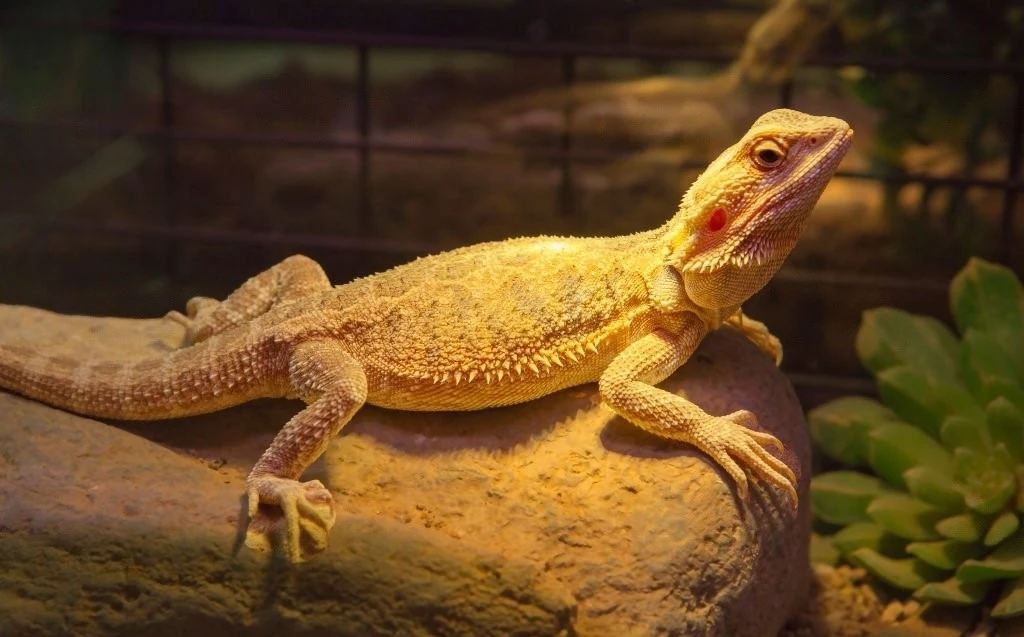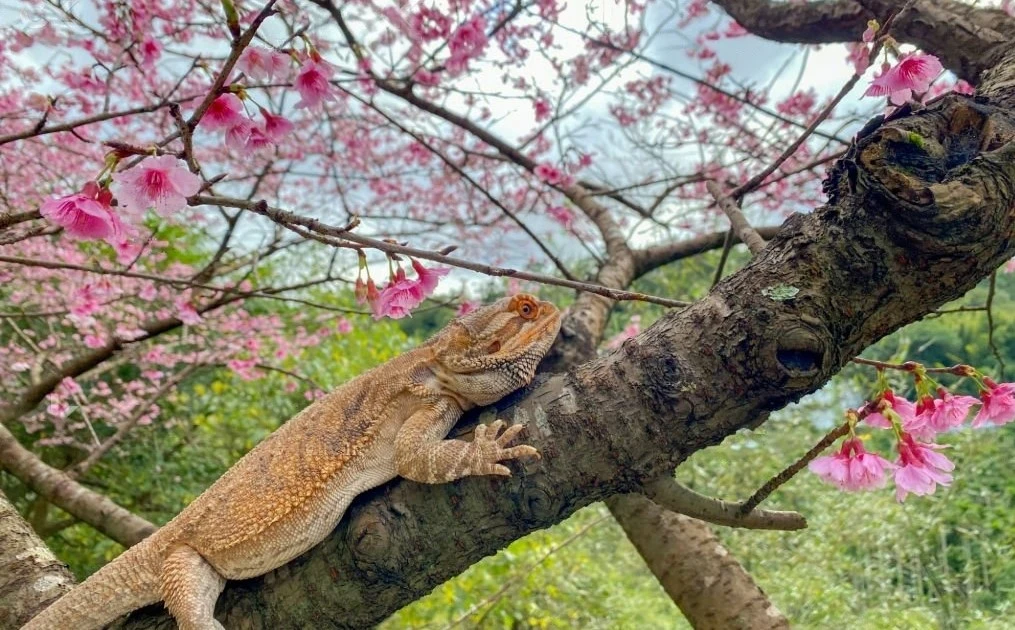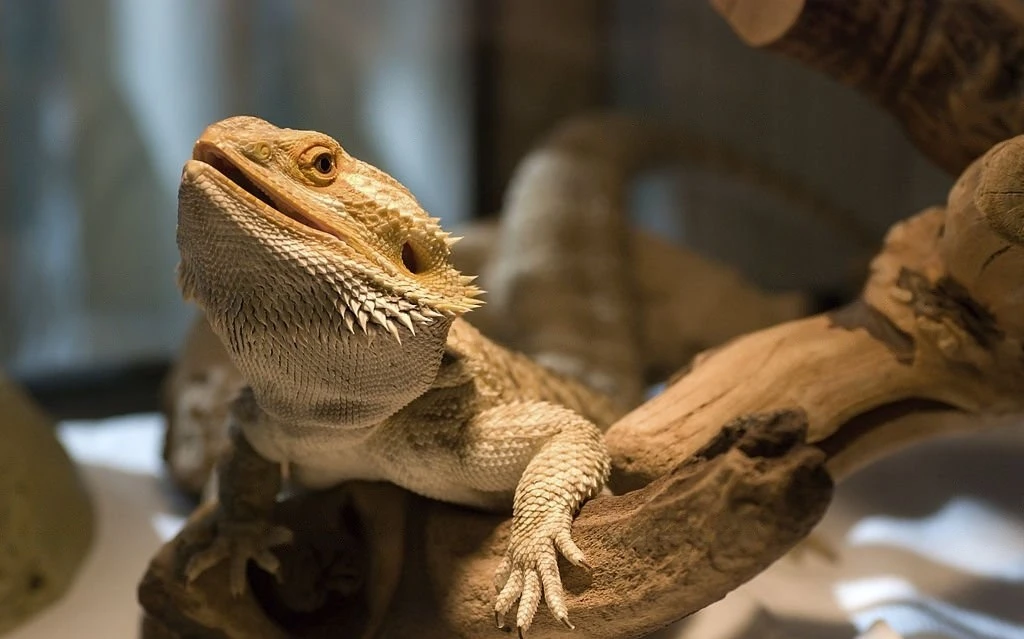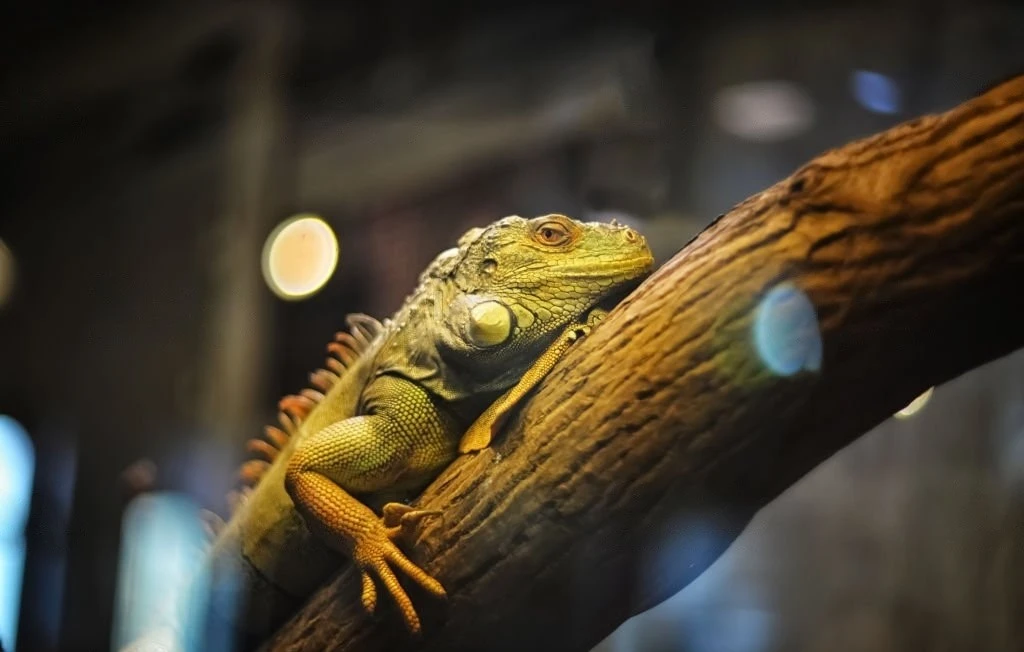Bearded dragons are known for their sunny personalities and active lifestyles, but if your dragon is showing signs of lethargy, loss of appetite, or other symptoms, they may be depressed.
Sure enough, studies have shown that these creatures possess an innate capacity to recognize and respond to human emotions – meaning they may be vulnerable to mood disorders like other companion animals.
As with any living creature, there are certain environmental conditions that must be met in order for a beardie (as they’re affectionately known) to remain happy and healthy.
When these needs aren’t met, behavioral changes often occur – sometimes indicating underlying mental health issues such as depression.
This can range from withdrawal symptoms or listlessness to aggression towards handlers or even self-injury caused by stress or boredom.
Symptoms of Depression in Bearded Dragons

Take John as an example. He had been keeping his beardie for nearly three years when he first suspected something was wrong with her. She had stopped climbing around and seemed disinterested even when he offered her favorite food.
After some research, John realized his beloved pet could be suffering from depression due to environmental changes or lack of stimulation in its tank.
Depression can manifest in many different ways in bearded dragons. Here are some of the most common symptoms to look out for:
Physical Symptoms
- Loss of appetite or weight loss
- Lethargy or lack of energy
- Digestive problems, such as constipation or diarrhea
- Abnormal shedding or skin problems
- Respiratory issues, such as wheezing or coughing
Behavioral Symptoms
- Hiding or refusing to come out of their hide
- Lack of interest in toys or other stimuli
- Reduced activity levels or lack of movement
- Aggression or irritability
- Unusual vocalizations, such as hissing or growling
What Causes Depression in Bearded Dragons?

Depression in bearded dragons can have many different causes, including:
- Boredom and lack of stimulation
- Inadequate diet or nutrition
- Environmental stress, such as a dirty or overcrowded enclosure
- Illness or injury
- Lack of social interaction or bonding with their owner
Can a bearded dragon be depressed by not mating?
There is evidence that bearded dragons can become depressed if their needs are not met, including the need to mate. The lack of stimulation in captivity may play a major role in depression in bearded dragons.
How To Cheer Up A Depressed Bearded Dragon
Although bearded dragons are not typically known to show signs of depression, there can be cases where they do display symptoms and require special care.
In this case, it’s important to know how to cheer them up! Here are some tips on doing just that:
| Provide a Varied and Nutritious Diet |
|---|
| Bearded dragons need a balanced and varied diet that includes a mix of vegetables, fruits, and insects. Offer a wide range of foods to keep them interested and provide a variety of nutrients. Make sure they have access to fresh, clean water at all times. |
| Provide plenty of stimulation |
|---|
| Provide plenty of stimulation for your pet. Bearded dragons need both mental and physical activity in order to stay healthy, so encourage activities such as digging or climbing. You could also offer treats or toys as rewards when they complete tasks or perform tricks correctly. Regular interaction with humans is great too – talk to them gently while handling them or let them sit on your shoulder while you watch TV together! |
| Improve Their Environment |
|---|
| Make sure your dragon’s enclosure is clean, spacious, and well-lit. Provide plenty of hiding places, climbing structures, and other enrichments to keep them stimulated and engaged. Make sure the enclosure is located in a quiet area where they won’t be disturbed by loud noises or sudden movements. |
| Provide Social Interaction |
|---|
| Bearded dragons are social animals that need interaction with their owners to stay healthy and happy. Spend time with your dragon every day, handling them gently and talking to them in a calm, reassuring voice. Offer plenty of opportunities for bonding, such as hand-feeding or playing with toys together. |
| Add Some New Toys or Hiding Places |
|---|
| To keep your bearded dragon entertained, consider adding some new toys or hiding places to their enclosure. Be sure to choose items that are safe for reptiles and won’t pose a choking or injury hazard. You can also rotate their toys and hides periodically to keep things fresh and interesting. |
| Consult a Veterinarian |
|---|
| If your dragon’s depression persists despite your best efforts, it may be time to consult a veterinarian. A vet can perform a thorough examination and provide guidance on treatment options, which may include medications, dietary changes, or other interventions. |
Do Bearded Dragons Know When You’re Sad

Bearded dragons are intelligent creatures and they can sense the emotions of their owners. It is astounding to think that while these reptiles cannot speak, they understand us in ways we often underestimate.
They may not be able to verbalize it, but bearded dragons recognize when you’re feeling down or discouraged. It’s almost as if a tender heart beats within them; an emotion that transcends species barriers.
Although the source of this empathy remains largely unknown, many have speculated that it comes from the bond between humans and reptiles.
We love our scaly friends, so much so that perhaps they pick up on our feelings too—like a silent witness of our sorrows.
The truth is sometimes hard to accept; even when faced with adversity, life must go on. And yet, just like any good friend, your beardie will stay by your side no matter what hardships come along.
Can Bearded Dragons Die From Depression
It is possible for a bearded dragon to be depressed, and it can affect its behavior. Signs of depression include loss of appetite, being lethargic or withdrawn, not engaging in social activities, refusing to bathe or groom themselves, and sleeping more than usual.
When these signs are present it’s important to take action quickly because if left untreated it can lead to physical health issues such as malnutrition and dehydration.
But can a bearded dragon die from depression? In short – yes they can. Just like humans suffering from extreme depression, dragons may stop eating and drinking which could eventually cause them to starve or become dehydrated resulting in death.
Additionally, stress-related illnesses such as MBD (Metabolic Bone Disease) caused by improper lighting conditions or dietary deficiencies could also increase the risk of death due to depression.
The best way to prevent your dragon from becoming depressed is by providing them with an environment that mimics its natural habitat; this includes providing plenty of UVB light, good temperature regulation and enough space for exercise.
You should also pay attention to changes in their behavior so you can spot any signs of distress early on before it becomes fatal.
Conclusion
In conclusion, bearded dragons can certainly become depressed. It is important for us to be aware of the signs and causes of depression in these animals so that we can help them out when they are feeling down.
We must not forget that even though these creatures may appear stoic, they have feelings just like any other living being – which means emotions such as sadness can affect their well-being too.
Bearded dragons need a loving home with plenty of attention and care in order to stay healthy and happy. By providing this kind of nurturing atmosphere, you will ensure your dragon’s emotional health remains strong throughout its lifespan.
Beardies cheer up quickly when given love and attention – so don’t hesitate to show yours some extra affection whenever necessary!
With patience and understanding, you’ll soon see an improvement in your pet’s mood; after all, nothing beats the joy of having a bright-eyed little buddy around who loves you unconditionally!
